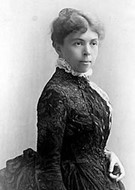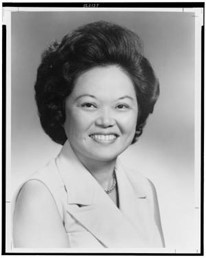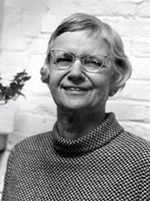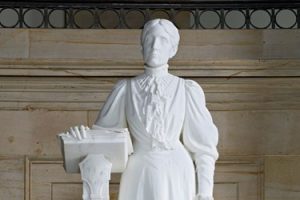- BLOG HOME
- »
- Research Reports
- »
- Recognizing Women Trailblazers in Higher Education

Recognizing Women Trailblazers in Higher Education
As Women’s History Month begins, we honor the women trailblazers who fought to expand access to higher education. According to Wesleyan College, Catherine Brewer Benson was one of the first women to earn a bachelor’s degree and did so in 1840. Today, 57% of degree earners are women, according to the National Student Clearinghouse Research Center. It’s time to recognize a few of these leaders that made these gains possible.

Alice Palmer – Source: Amazing Women in History
Alice Palmer
Alice Palmer was an influential advocate and trailblazer for women’s education in the 19th century. Born in Colesville, New York, in 1865, Palmer graduated from the University of Michigan. She began her career at a boarding school before teaching history at Wellesley College in Massachusetts. Palmer became the president of Wellesley and the first female president of a nationally known college. She also launched the American Association of University Women (AAUW ), a non-profit that advances equity for women and girls through advocacy, education, and research.

Patsy Mink – Source: National Women’s History Museum
Patsy Mink
As a leading advocate for women’s rights and education, Patsy Mink opened the door for millions of women to attend college in the United States. Born in Hawaii in 1927, Mink was the first woman of color elected to Congress. Mink played a crucial role in the writing and passage of Title IX, which mandated equal treatment for men and women in education. Title IX dramatically increased the number of women attending college and opened the door for millions of more women to participate in high school and college sports. Mink also introduced the Women’s Educational Equity Act of 1974, which provided funds to promote gender equity in schools and increase education and job opportunities for women.

Mary Bunting – Source: Post University
Mary Bunting
Mary Bunting played a crucial role in fighting for coeducation and equal opportunities for women at the nation’s top universities. Bunting taught at Bennington College, Goucher College, Yale University, and Wellesley College, before becoming Dean of Douglass College, the women’s school at Rutgers University. At Douglass, she created a program to support non-traditional women students who had been out of high school for five or more years.
In the 1950s and 1960s, Bunting became a national leader calling for equal access to higher education for women. During her time as president of Radcliffe College, the undergraduate college for women at Harvard, women began to receive Harvard degrees, were admitted to the university’s graduate and business schools, and the Radcliffe Graduate School merged with Harvard’s Graduate School of Arts and Sciences.

Frances E. Willard – Source: Architect of the Capitol
Frances E. Willard
Frances Willard is remembered both for her commitment to women in higher education and her advocacy during the suffrage movement. She became one of the first female college presidents in 1871 at Evanston College for Women in Illinois. Willard was one of the founders of the National Council of Women and became President of the Woman’s Christian Temperance Union (WCTU). At WCTU, she urged members to participate in local and national politics and advocate for women’s educational opportunities. A statue of Willard is currently on display in National Statuary Hall at the U.S. Capitol.
During this year’s Women’s History Month, we celebrate and recognize these women who changed the higher education landscape for generations to come!
Additional Resources:



